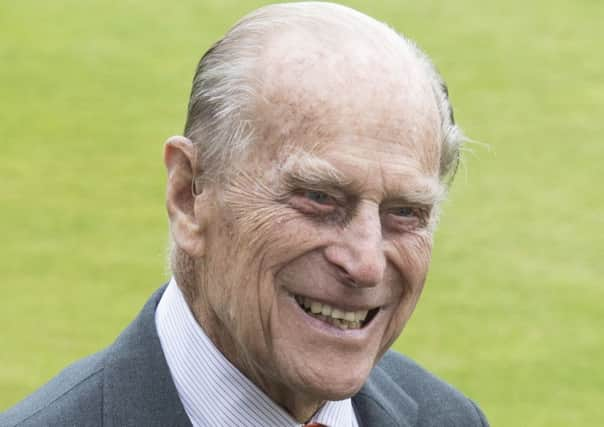YP Comment: Philip takes a back seat role. Changing of the guard at Palace


Still sprightly at the age of 95, and in apparently good health, public life will be much duller without Prince Philip’s presence and good humour.
Only on Wednesday, he opened a new stand at Lord’s cricket ground by telling those present: “You’re about to see the world’s most experienced plaque unveiler.”
Advertisement
Hide AdAdvertisement
Hide AdSelf-depreciating, it should be remembered that His Royal Highness is patron, president or a member of over 780 organisations and that he remains more active than many people half his age. His vast contribution to the country, and Commonwealth, was reflected by the warmth of the tributes in recognition of his great and distinctive service.
Yet, while some will speculate endlessly about the timing of the announcement, the Duke is a nonagenarian and, in all probability, does not want to disappoint the organisers of any events that he cannot attend in the future because of his health. He’s also kept open the possibility of attending significant events of his own choosing. Unlike those in public life who regret remaining in the spotlight for too long, Philip has chosen an opportune time to bow out on his terms.
He also earned the right to pursue his own interests at a slightly more sedate pace – he has been the Queen’s ‘rock’ throughout Her Majesty’s record-breaking reign and he will continue to provide unflinching support as more responsibilities pass to the Prince of Wales and, in turn, the Duke and Duchess of Cambridge, plus Prince Harry. Though their personal hallmarks, and styles, are very different, this announcement is a reminder – if one was needed – about the sheer scale of the duties, and good work, undertaken by the Royal family – and the extraordinary example that continues to be set by both the Queen and a consort like no other.
Mayoral muddle
SIX English regions will today discover the identity of their first directly-elected mayor. They include the West Midlands, where the battle between the Conservatives and Labour sets the tone of next month’s general election, as well as Greater Manchester, Liverpool City and the Tees Valley closer to home.
Advertisement
Hide AdAdvertisement
Hide AdThe one area missing from this list is Yorkshire (with the honourable exception of Doncaster which has had its own elected mayor since 2002), and this despite exhaustive efforts by local, regional and national leaders to reach some form of consensus on the best devolution deal of all for an area that compares more than favourably to Scotland in terms of both size and stature.
This newspaper has previously argued that it’s important to get the right leadership structure in place from the outset and that time does need to spent formulating a blueprint which maximises Yorkshire’s future economic potential. Given that voters don’t want more tiers of government – they desire more effective governance – no deal is still preferable to an ill-conceived plan that amounts to little more than a series of glorified ‘talking shops’ whch achieve little and lack accountability.
That said, it is a source of frustration that this region’s devolution debate is mired in deadlock two years after rival regions decided to seize the moment and make the most of the policy-making powers made available to them. At some stage, Yorkshire will need to determine its future direction – perhaps yesterday’s elections will prove to be the wake-up call that this area’s influential leaders, including Northern Powerhouse Minister Andrew Percy, do now require.
Ukip’s true colours
HOW times change. Exactly two years ago, Ukip polled almost four million votes in the 2015 election thanks to Nigel Farage’s unique leadership style and the public’s mistrust of the main parties.
Advertisement
Hide AdAdvertisement
Hide AdNow Ukip is fighting for its soul and very future. Its leader Paul Nuttall lacks all credibility following the embarrassment of his exaggerated CV, not least the crass comments about the Hillsborough disaster, while disaffected officials have resigned en masse in Rotherham, one of the party’s strongholds. If they can’t agree amongst themselves, how can they be trusted with the levers of government?
A party which helped to change Britain with its ultimately successful campaign for the UK to leave the European Union, will this election mark the beginning of the end for Ukip? It appears so.